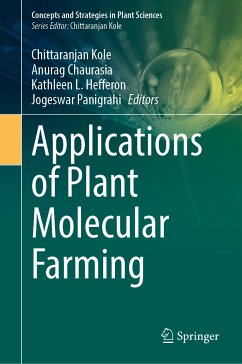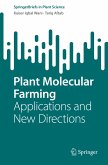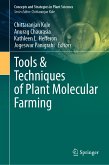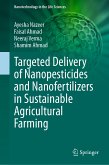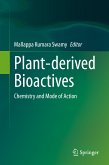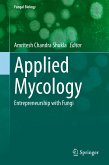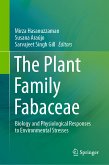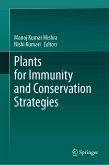This edited book is a comprehensive compilation of applications of plant molecular farming in various fields including agriculture, industry and medicine, using different plant/crop systems as bioreactors for the bulk production of products of interest. The book places special emphasis on plant molecular farming being utilized for the bulk production of biologics, industrial enzymes, vaccines, drugs and recombinant pharmaceutical proteins.
Plant molecular farming (PMF) is an upcoming promising interdisciplinary subject, and therefore the book contains contributions from experts across the disciplines. The utilization of plant viral vectors to produce biologics, virus-like particles and antimicrobial peptides via PMF have been highlighted. Molecular farming for the bulk production of recombinant pharmaceutical proteins and various types of human and veterinary vaccines in different crops/plants and genetically modified seeds has been included. The process of scaling up to manufacturing capacity, product formation by bioprocessing of plant cell suspension culture, and bioreactor engineering have been incorporated. Lastly, the book provides special coverage on utilizing PMF made products to control neglected tropical diseases and plant-made antigens as immunotherapies for allergic and autoimmune diseases.
The book has chapters from leading experts on the subject, making it equally beneficial for researchers, policy planners, industrialists, medical professionals, entrepreneurs, and students of various related disciplines.
Dieser Download kann aus rechtlichen Gründen nur mit Rechnungsadresse in A, B, BG, CY, CZ, D, DK, EW, E, FIN, F, GR, HR, H, IRL, I, LT, L, LR, M, NL, PL, P, R, S, SLO, SK ausgeliefert werden.

